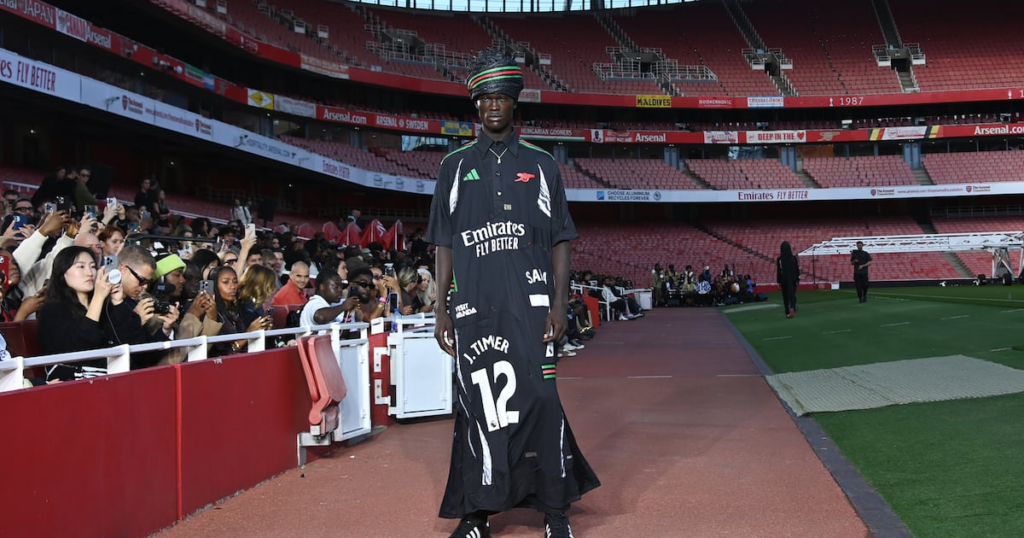[ad_1]

The author has shared a Podcast.You will need to accept and consent to the use of cookies and similar technologies by our third-party partners (including: YouTube, Instagram or Twitter), in order to view embedded content in this article and others you may visit in future.
Subscribe to the BoF Podcast here.
Background
In recent years, sports has provided a rich ground for fashion partnerships. Where even three years ago Diorâs tie-up with Paris Saint-Germain was relatively novel, today itâs harder to find luxury brands that arenât at least dabbling in football, Formula 1 or other sports. These deals are also getting increasingly elaborate, with brands outfitting athletes, teams and even entire leagues on and off the field.
This new wave of partnerships is about more than just looks or finding new audiences â itâs about cultural relevance.
âFashion brands have looked to [sports] to market their products to groups of consumers who maybe werenât targeted by these brands previously, and athletes themselves have become major brands and media businesses in their own right,â says BoF sports correspondent Daniel-Yaw Miller.
This week on The Debrief, Executive Editor Brian Baskin and Senior Correspondent Sheena Butler-Young sit down with Daniel-Yaw Miller to explore how the worlds of fashion and sports are colliding like never before.
Key Insights
- For a partnership to be successful, it must feel authentic. Arsenalâs collaboration with London-based brand Labrum, which presented a runway show at Arsenalâs stadium is a prime example. The jersey colours draw influence from the Pan-African flag and hint to the histories of the players and the club. âThat partnership makes sense on a cultural level and fans can buy into that authentic messaging rather than just a logo swap,â he says.
- As individual athletes gain larger followings, brands see more appeal in creating tailored partnerships with rising stars like Coco Gauff and Angel Reese. âAthletes now have a direct bond with fans that the previous generation of stars never had,â Miller notes. âSports fans have had insights into Coco Gauff and Naomi Osakaâs lives since they were teenagers. Theyâve grown with them, and thatâs at the very essence of their appeal to these brands.â
- The rise of womenâs sports has opened doors for fashion brands that previously overlooked the sector. âAnd thatâs really opened up the sports industry, which has traditionally been extremely male dominated. So a whole range of luxury womenswear brands that previously never really had an entry point into the sports industry,â Miller explains.
- Some sports struggle to find traction in the fashion world. While Formula 1 has embraced luxury, baseball remains on the sidelines. âBaseball has never quite broken out to have true global appeal in a sense that fashion could leverage,â Miller says. âI think baseball is very similar to where Formula One was before the Liberty Media acquisition, where there was a strict atmosphere around showing an interest in things that are outside the direct line of business for a baseball organisation thatâs hampered how much the sport and the athletes have been able to be in fashion.â
Additional Resources
- Fashionâs Sports Obsession Is No Accident: The Olympics are proving a perfect marriage of the sports and fashion industries. Itâs the culmination of several factors that have turned sport into fashionâs most exciting new arena over the past two years.
- How Athletes Became Fashion Week Royalty: Itâs not just sports superstars sitting front row at fashion week. Today, luxury labels are looking to work with emerging athletes from niche sports, giving rise to new dealmakers who match brands with eager skateboarders, boxers and rugby players.
- Inside the Big Business of Styling Athletes: NBA stars and footballers are leaning on a network of powerful style consultants to help shape their personal brands outside of their day jobs, laying the groundwork for lucrative brand deals.
[ad_2]
Source link

